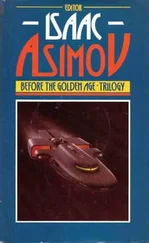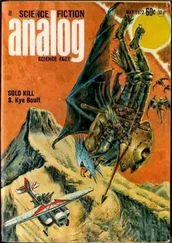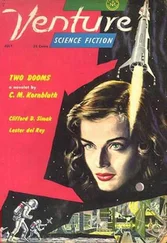Clifford Simak - Ring Around the Sun
Здесь есть возможность читать онлайн «Clifford Simak - Ring Around the Sun» весь текст электронной книги совершенно бесплатно (целиком полную версию без сокращений). В некоторых случаях можно слушать аудио, скачать через торрент в формате fb2 и присутствует краткое содержание. Жанр: Фантастика и фэнтези, на английском языке. Описание произведения, (предисловие) а так же отзывы посетителей доступны на портале библиотеки ЛибКат.
- Название:Ring Around the Sun
- Автор:
- Жанр:
- Год:неизвестен
- ISBN:нет данных
- Рейтинг книги:5 / 5. Голосов: 1
-
Избранное:Добавить в избранное
- Отзывы:
-
Ваша оценка:
- 100
- 1
- 2
- 3
- 4
- 5
Ring Around the Sun: краткое содержание, описание и аннотация
Предлагаем к чтению аннотацию, описание, краткое содержание или предисловие (зависит от того, что написал сам автор книги «Ring Around the Sun»). Если вы не нашли необходимую информацию о книге — напишите в комментариях, мы постараемся отыскать её.
Ring Around the Sun — читать онлайн бесплатно полную книгу (весь текст) целиком
Ниже представлен текст книги, разбитый по страницам. Система сохранения места последней прочитанной страницы, позволяет с удобством читать онлайн бесплатно книгу «Ring Around the Sun», без необходимости каждый раз заново искать на чём Вы остановились. Поставьте закладку, и сможете в любой момент перейти на страницу, на которой закончили чтение.
Интервал:
Закладка:
Once the boxcar had unloaded it took off again — took off without a single sound, as if a wind had seized and wafted it into the upper air.
The flying things came in endless streams, disgorging their endless round of cargo, which was taken care of almost immediately. Nothing was left piled up. By the time the machine had lifted into the air, the cargo it had carried had been rushed off somewhere.
Like men, thought Vickers — those machines act just like men. Their operation was not automatic, for to have been automatic each operation must have been performed at a certain place and at a regular time — and each ship did not land in exactly the same place, nor was the time of their arrival spaced regularly. But each time that a ship landed the appropriate carrying machine would be on hand to take charge of the cargo.
Like intelligent beings, Vickers thought, and even as he thought of it, he knew that that was exactly what they were.
Here, he knew, were robots, each one designed to take care of its own particular task. Not the man-like robots of one's imagination, but practical machines with intelligence and purpose.
The sun had set and as he stood at the corner of the building he looked up at the towers which had faced the sun. The discs atop the towers, he saw, were slowly turning back toward east, so that when the sun came up next morning they would be facing it.
Solar power, thought Vickers — and where else had he heard of solar power? Why, in the mutant houses! The dapper little salesman had explained to him and Ann how, when you had solar plant, you could dispense with public utilities.
And here again was solar power. Here, too, were frictionless machines that ran without the faintest noise. Like the Forever car that would not wear out, but would last through many generations.
The machines paid no attention to him. It was as if they did not see him, did not suspect he was there. Not a single one of them faltered as they rushed past him, not a single one had moved out of its way to give him a wider berth. Nor had any made a threatening motion toward him.
With the going of the sun, the area was lighted, but once again he could not determine the source of the light. The fall of night did not halt the work. The flying boxcars, great, angular, box-like contraptions, still came flying in, unloaded and flew off again. The machines kept up their scurrying. The long lines of machines within the buildings kept up their soundless labor.
The flying boxcars, he wondered, were they robots, too? And the answer seemed to be that they probably were.
He wandered about, hugging the building to keep out of the way.
He found a mighty loading platform, where the boxes were piled high, carried there by machines, loaded into the flying boxcars by machines, steadily going out to their destination, wherever it might be. He edged his way onto the platform and looked at some of the boxes closely, trying to determine what it was they held, but the only designations on them were stenciled code letters and numerals. He thought of prying some of them open, but he had no tools to do it, and he was just a bit afraid to do it, for while the machines continued to pay no attention to him, they might pay disastrous attention if he interfered.
Hours later he came out on the other side of the sprawling factory area and walked away from it, then turned back and looked at it and saw it glowing with its strange light and sensed the bustle of it.
He looked at the factory and wondered what was made there and thought he could guess. Probably razor blades and lighters and maybe light bulbs and perhaps the houses and the Forever cars. Maybe all of them.
For this, he felt certain, was the factory, or at least one of the factories, that Crawford and North American Research had been looking for and had failed to find.
No wonder, he thought, that they had failed to find it.
CHAPTER THIRTY-TWO
HE came to the river late in the afternoon, a river filled with tree-covered, grape-vined islands, clogged with sandbars and filled with wicked gurgling and the hiss of shifting sands and it could be, he was sure, no other stream than the Wisconsin River, flowing through its lower reaches to join the Mississippi. And if that were so, he knew where he was going. From here he could reach the place where he was going.
Now he feared he would not find the place he sought, that in this land there was no Preston house. Rather, he had fallen upon a strange land where there were no men, but robots, a complex robotic civilization in which Man played no part. There were no men connected with the factory, he was sure, for the place had been too self-sufficient, too sure of its purpose to need the hand or the brain of Man.
As the last daylight faded, he camped on the river's shore, and sat for a long time before he went to sleep, staring out over the silvered mirror of the moonlit water, feeling the loneliness strike into him, a deeper, more bitter loneliness than he'd ever known before.
When morning came, he'd go on; he'd tread the trail to its dusty end. He'd find the place where the Preston house should stand and when he found that there was no house — what would he do then?
He did not think about that. He did not want to think about it. He finally went to sleep.
In the morning he went down the river and studied the bluff-studded southern shore as he slogged along and was more sure than ever from the character of the bluffs that he knew where he was.
He followed the river down and finally saw the misty blue of the great rock-faced bluff that rose at the junction of the rivers and the thin violet line of the bluffs beyond the greater river, so he climbed one of the nearer bluffs and spied out the valley he had hunted.
He camped that night in the valley and the next morning followed it and found the other, branching valley that would lead to the Preston house.
He was halfway up it before it became familiar, although he had seen here and there certain rock formations and certain clumps of trees that had seemed to him to bear some similarity to ones he had seen before.
The suspicion and the hope grew in him, and at last the certainty, that he tread familiar ground.
Here once again, was the enchanted valley he had travelled twenty years before!
And now, he thought — and now, if the house is there.
He felt faint and sick at the certainty it would not be there, that he would reach the valley's head and would see the land where it should have stood and it would not be there. For if that happened, he would know that the last of hope was gone, that he was an exile out of his familiar Earth.
He found the path and followed it and he saw the wind blow across the meadow grass so that it seemed as if the grass were water and the whiteness of its wind-blown stems were whitecaps rolling on it. He saw the clumps of crab-apple trees and they were not in bloom because the season was too late, but they were the same that he had seen in bloom.
The path turned around the shoulder of a hill and Vickers stopped and looked at the house standing on the hill and felt his knees go wobbly beneath him and he looked away, quickly, and brought his eyes back slowly to make sure it was not imagination, that the house was really there.
It was really there.
He started up the path and he found that he was running and forced himself to slow to a rapid walk. And then he was running again and he didn't try to stop.
He reached the hill that led up to the house and he went more slowly now, trying to regain his breath, and he thought what a sight he was, with weeks of beard upon his face, with his clothing ripped and torn and matted with the dirt and filth of travel, with his shoes falling to shreds, tied upon his feet with strips of cloth ripped from his trouser legs, with his frayed trousers blowing in the wind, showing dirt-streaked, knobbly knees.
Читать дальшеИнтервал:
Закладка:
Похожие книги на «Ring Around the Sun»
Представляем Вашему вниманию похожие книги на «Ring Around the Sun» списком для выбора. Мы отобрали схожую по названию и смыслу литературу в надежде предоставить читателям больше вариантов отыскать новые, интересные, ещё непрочитанные произведения.
Обсуждение, отзывы о книге «Ring Around the Sun» и просто собственные мнения читателей. Оставьте ваши комментарии, напишите, что Вы думаете о произведении, его смысле или главных героях. Укажите что конкретно понравилось, а что нет, и почему Вы так считаете.









